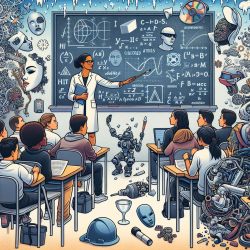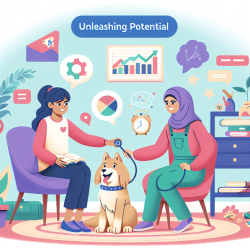In the realm of engineering education, the experiences of Latinx students often remain underexplored. The research article "Ethnicity, Race, and Gender in Engineering Education: The Nuanced Experiences of Male and Female Latinx Engineering Undergraduates Targeted by Microaggressions" sheds light on the subtle yet pervasive challenges these students face. This blog aims to translate these findings into actionable insights for educators and practitioners striving to create more inclusive learning environments.
The Impact of Microaggressions
Microaggressions are subtle or ambiguous discriminatory behaviors that can have profound impacts on the academic well-being of Latinx engineering students. These include microinvalidations, microinsults, and microassaults. For instance, students reported feeling alienated due to assumptions about their foreignness or being undervalued compared to their White peers. Such experiences can erode self-esteem and academic self-efficacy, ultimately affecting academic performance.
Understanding Critical Race Theory and Latino Critical Theory
The study is guided by Critical Race Theory (CRT) and Latino Critical Theory (LatCrit), which explain how normalized racism impacts underrepresented groups. These frameworks highlight the intersectionality of race and gender, emphasizing that Latinx students face unique challenges due to systemic biases in educational settings.
Strategies for Educators
To foster a more inclusive environment, educators can implement several strategies:
- Acknowledge and Address Bias: Educators should be trained to recognize implicit biases and understand how they manifest as microaggressions. Regular workshops and training sessions can help faculty and staff become more aware of their own biases.
- Create Supportive Networks: Establish mentorship programs connecting Latinx students with faculty and peers who share similar backgrounds. This can provide a sense of belonging and reinforce positive identity development.
- Enhance Representation: Increasing the diversity of faculty in engineering departments can provide role models for Latinx students and help dismantle stereotypes.
- Encourage Open Dialogue: Facilitate discussions around race, ethnicity, and gender in classroom settings. Creating safe spaces for these conversations can empower students to share their experiences without fear of judgment.
The Role of Resilience
The study highlights the resilience of Latinx students who persist despite facing microaggressions. Many rely on family support, peer networks, and personal coping strategies to navigate challenges. Educators can support this resilience by recognizing the strengths that students bring from their cultural backgrounds.
Call to Action for Further Research
This research underscores the need for ongoing studies into the experiences of Latinx students in STEM fields. By understanding the nuances of their challenges, educators can develop targeted interventions that address both individual biases and systemic barriers. Practitioners are encouraged to delve deeper into this area to inform policies that promote equity in education.
To read the original research paper, please follow this link: Ethnicity, Race, and Gender in Engineering Education: The Nuanced Experiences of Male and Female Latinx Engineering Undergraduates Targeted by Microaggressions.










